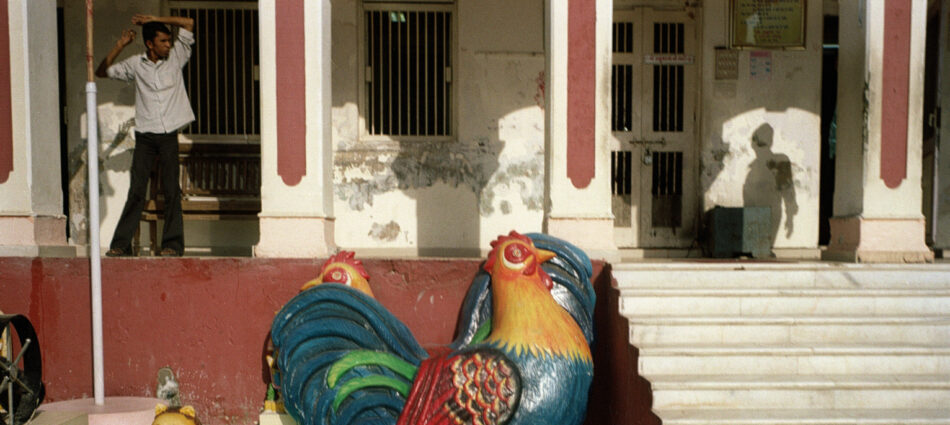
All Faiths Bring You To The Feet Of Haji Pir
You can already see them on the roads leading up to this small town in remote Western Kutch. Pilgrims from as far away as Rajasthan, Madhya Pradesh and Gujarat are slowly, determinedly making their way to the town of Naragram in the Banni region of Kutch, Gujarat. Many are on foot and carrying the green flags that define them as devotees to the famous saint known here as Haji Pir. Dozens can be seen resting at night at local gas stations and truck stops.

Location Of The Shrine Of Haji Pir, Nakhratrana, Gujarat
There are Muslims, Hindus, Jains, Sikhs and even those we would be hard pressed to describe by any such simplistic category e.g. the Bhil tribespeople will find their way here all the way from Madhya Pradesh.
Haji Pir’s reputation as a miracle worker is known far and wide. There is a legend that his reputation reached the King of Bhuj who had no child. The king came to Haji Pir and begged that he help him give birth to an heir. The Pir promised to help on the condition that should a son be born to the king, the king allocate a piece of land where the Pir could retire to meditate. A son was born. The land was allocated. Haji Pir had once been a soldier in the army of the king Sahabuddin, but soon grew tired and disillusioned with the life of the soldier and the necessity of violence and killing. He chose the path of a fakir instead, studying Islamic scriptures and catering to the needs of the people.
Anyone spending any amount of time at such regional shrines quickly becomes familiar with the stories of miracles that grow up around the saint him/herself. The ability to call forth an abundance of drinking water, the courageous battle despite being beheaded against local tormentors are two themes that are frequently repeated at various shrines in India. Haji Pir too has many legends around him which I will detail in the near future. For the moment, his annual festival approaches – April 9th, 10th and 11th 2011 are the propitious days and thousands are slowly making their way to this small town bringing with them their hopes, dreams, fears and desperation and the faith that the Pir will resolve and solve.
Their journey across the stretch of Gujarat’s barren Kutch region, under temperatures that are now well above 110 F, represents the true meaning of a pilgrimage of faith. It demands the self-sacrifice and the overcoming off odds that are the fundamental idea behind a pilgrimage for it is meant to be a test of the will and of the faith. The destination may in fact be the least important element of it, with faith being tested by the rigors of the journey itself. The strength of one’s convictions not in the vehemance of one’s prayers, but in the strength of one’s will.
Some of this veneration for the journey has been lost in annual pilgrimages such as the Hajj where ease and comfort of travel has become available to those who can afford it. The 5 star Hilton that looms over the Kaaba a reminder of how much of the essence of a religious pilgrimage has been lost in our easily purchased modernity. However unlike modern-day righteous on their A/C-ed, cushioned, conveyor belt to convenience to the Kaaba, the tens of thousands of ordinary Indians of all faiths making their way through the dust and heat of Gujarat towards this shrine to Haji Pir will have earned the right to utter those beautiful words….Labbaik…I have come.
I am on my way to Haji Pir, not as a privileged pilgrim, but merely as a spectator. I lack the faith, the determination and the will. But I go nevertheless because, as one pilgrim I met on the road said to me, Haji Pir must have called you for otherwise you would not be heading there. I am heeding his call in my own small way.